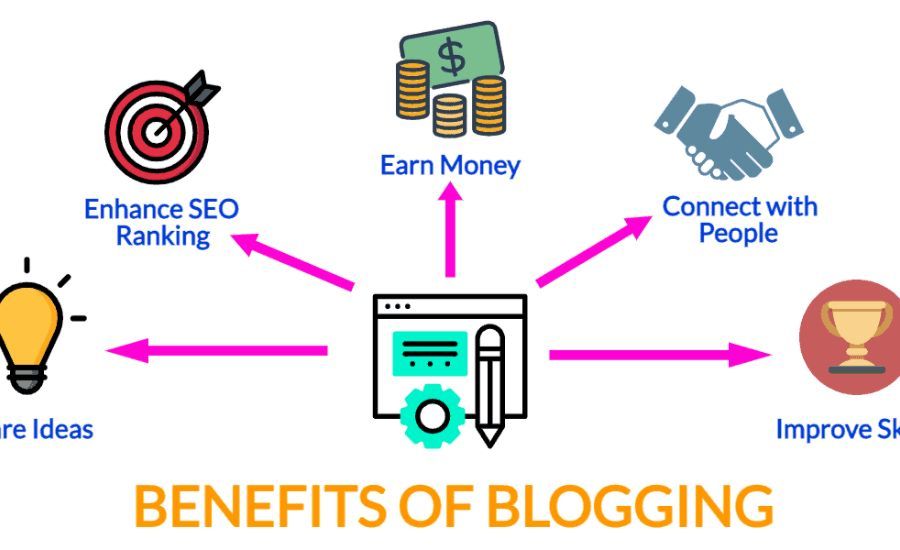Https://Creditospresta.Com/Dispon-Que- Es-Tipos-De-Prestamo-Condiciones, Significance & More
Introduction TO Https://Creditospresta.Com/Dispon-Que- Es-Tipos-De-Prestamo-Condiciones
In these days’s dynamic economic landscape, obtaining a loan can be an essential answer for meeting a range of private and commercial enterprise needs. Whether you are aiming to purchase a brand new automobile, fund better education, consolidate debt, or control unexpected prices, having a clear knowledge of the sorts of loans available and their terms is critical. Loans provide the important monetary guide to assist people gain their goals, but each type comes with its very own set of necessities, benefits, and situations.
This article explores the idea of “dispon,” which refers back to the availability and accessibility of finances for borrowing, as well as the diverse kinds of loans, including non-public loans, secured loans, commercial enterprise loans, and pupil loans. Each loan type has specific blessings, which include lower interest rates for secured loans or bendy compensation options for private loans. Additionally, understanding the associated conditions, consisting of credit score requirements, hobby rates, and collateral needs, can assist debtors make informed decisions.
By delving into the traits of various mortgage options and their respective benefits, this text aims to guide you through the mortgage choice procedure, ensuring you choose the pleasant financial answer based on your unique situation.
What is Dispon?

“Dispon” refers to the availability or accessibility of funds via loans, representing a financial nation where individuals or agencies can speedy gain the money they need. It usually includes credit services along with non-public loans, lines of credit score, credit cards, or different financing options. In monetary terms, dispon approach having access to equipped cash or credit score, which may be used for various purposes, which includes overlaying surprising expenses, financing huge purchases, or dealing with coins float in a commercial enterprise.
Understanding how dispon works can empower debtors via helping them make knowledgeable monetary choices primarily based on their specific desires and monetary circumstances. When credit is conveniently available, individuals can reply to pressing monetary requirements more efficiently, reducing the strain associated with instantaneous costs or emergencies. However, it is important for borrowers to evaluate the terms of credit carefully, inclusive of hobby costs, compensation schedules, and associated charges, to make certain they manipulate the borrowed finances effectively.
In addition to providing flexibility and monetary safety, dispon additionally reflects the wider state of the economic system, as greater get entry to to credit score can stimulate patron spending and monetary increase. Thus, dispon performs a considerable position no longer just in private finance however in influencing market developments and financial improvement.
Dispon’s Significance in Financial Management

Dispon, which refers to the availability of budget or liquidity, plays a essential role in financial control through figuring out how quick and without problems people can get admission to cash whilst wished. It immediately affects a person’s ability to fulfill urgent charges, control cash waft, and preserve economic balance. For those dealing with surprising charges, such as medical payments, home repairs, or emergency travel, having access to loans with favorable conditions can alleviate giant monetary stress.
Understanding the forms of loans available—whether non-public loans, payday loans, credit score lines, or secured loans—and their unique terms, such as hobby quotes, reimbursement periods, and fees, is crucial for debtors. Recognizing these situations enables people navigate their alternatives greater successfully, ensuring that they pick the proper economic product that fits their financial state of affairs and dreams. For example, a borrower may additionally choose a personal loan with decrease hobby costs and longer repayment phrases for sizable charges, even as short-term credit traces is probably suitable for smaller, instantaneous needs.
Moreover, coping with dispon isn’t always just about choosing the right loan however additionally about thinking about the effect on one’s ordinary economic fitness. Factors just like the borrower’s credit score score, debt-to-profits ratio, and present responsibilities can impact the accessibility and affordability of loans. By being knowledgeable about dispon and the associated economic merchandise, people could make greater strategic selections to hold liquidity, reduce financial burdens, and optimize their personal finances for each brief-time period desires and long-time period balance.
Types of Loans
Loans can be categorized into several types, each serving different purposes and coming with its own set of conditions. Below are some common types of loans available to consumers:
1. Personal Loans
Personal loans are versatile loans that individuals can use for various purposes, including consolidating debt, financing a vacation, or covering unexpected medical expenses. They typically have fixed interest rates and are paid back in installments over a specified period.
Key Features:
- Loan Amount: Varies based on creditworthiness, typically ranging from $1,000 to $50,000.
- Repayment Terms: Usually between 1 to 5 years.
- Interest Rates: Fixed or variable rates, often lower than credit cards.
Advantages:
- Flexibility in use.
- Predictable monthly payments.
Considerations:
- Borrowers need a good credit score to secure favorable terms.
2. Home Equity Loans
Home equity loans allow homeowners to borrow against the equity built up in their property. This type of loan is secured by the home, meaning that the house acts as collateral.
Key Features:
- Loan Amount: Typically 80% to 90% of the home’s equity.
- Repayment Terms: Generally ranges from 5 to 30 years.
- Interest Rates: Often lower than personal loans due to being secured by the property.
Advantages:
- Lower interest rates compared to unsecured loans.
- Possible tax deductions on interest paid.
Considerations:
- Risk of foreclosure if payments are not made.
3. Credit Cards
While not traditional loans, credit cards allow individuals to borrow money up to a certain limit for purchases. They are a form of revolving credit, meaning borrowers can pay off their balance and borrow again.
Key Features:
- Credit Limit: Varies by issuer and creditworthiness.
- Repayment Terms: Minimum monthly payments, typically requiring the balance to be paid in full to avoid interest charges.
- Interest Rates: Variable rates, usually higher than personal loans.
Advantages:
- Convenient for everyday purchases.
- Rewards programs and cashback opportunities.
Considerations:
- High-interest rates if balances are not paid in full.
4. Auto Loans
Auto loans are specifically designed to help individuals purchase vehicles. They can be obtained through banks, credit unions, or dealerships and are secured by the vehicle itself.
Key Features:
- Loan Amount: Typically based on the vehicle’s price.
- Repayment Terms: Usually between 3 to 7 years.
- Interest Rates: Often lower than personal loans, especially for new cars.
Advantages:
- Lower rates due to the loan being secured.
- Fixed monthly payments.
Considerations:
- Vehicle depreciation can affect the overall financial picture.
5. Student Loans
Student loans are designed to help cover the cost of education, including tuition, fees, and living expenses. They can be federal or private loans, with different terms and repayment options.
Key Features:
- Loan Amount: Varies based on educational needs.
- Repayment Terms: Typically 10 to 30 years.
- Interest Rates: Generally lower for federal loans, with options for deferment.
Advantages:
- Access to funds for education without immediate repayment requirements.
- Potential for loan forgiveness programs.
Considerations:
- Federal loans have specific conditions and limits on borrowing.
6. Payday Loans
Payday loans are short-term loans designed to provide immediate cash before the borrower’s next paycheck. These loans often come with high-interest rates and should be approached with caution.
Key Features:
- Loan Amount: Usually between $100 to $1,000.
- Repayment Terms: Typically due on the borrower’s next payday.
- Interest Rates: Extremely high compared to traditional loans.
Advantages:
- Quick access to cash in emergencies.
Considerations:
- Risk of falling into a cycle of debt due to high fees.
Conditions Associated with Loans
Each type of loan comes with specific conditions that borrowers must meet to qualify. Here are some common conditions to consider:
1. Credit Score
Most lenders evaluate a borrower’s credit score to determine their creditworthiness. A higher score often results in better interest rates and terms.
2. Income Verification
Lenders typically require proof of income to ensure borrowers can meet their repayment obligations. This can include pay stubs, tax returns, or bank statements.
3. Debt-to-Income Ratio (DTI)
The DTI ratio measures a borrower’s total monthly debt payments against their gross monthly income. A lower DTI indicates better financial health and may increase the likelihood of loan approval.
4. Collateral
Secured loans require collateral, such as a home or vehicle, to mitigate the lender’s risk. If the borrower defaults, the lender can seize the collateral.
5. Loan Purpose
Some lenders may restrict loan use to specific purposes, such as home improvements or educational expenses.
6. Loan Term Length
The repayment period can significantly affect monthly payments and the overall cost of the loan. Shorter terms typically result in higher monthly payments but less interest paid overall.
Benefits of Loans
Understanding the benefits of loans can help borrowers make informed decisions. Here are some advantages of obtaining a loan:
1. Immediate Access to Funds
Loans provide quick access to cash for emergencies or significant purchases, helping individuals manage unexpected expenses effectively.
2. Improving Credit Score
Timely repayments can positively impact credit scores, making it easier to secure future loans with better terms.
3. Budgeting and Planning
Fixed repayment schedules allow borrowers to budget more effectively, as they know exactly what their monthly obligations will be.
4. Financial Flexibility
Loans enable individuals to finance large purchases that they may not afford upfront, spreading the cost over time.
Challenges of Loans
While loans can be beneficial, there are also challenges associated with borrowing. Understanding these challenges can help borrowers navigate their financial obligations more effectively.
1. Interest Rates and Fees
High-interest rates, particularly for unsecured loans and payday loans, can lead to significant repayment amounts over time.
2. Risk of Over-Borrowing

The ease of obtaining loans may tempt individuals to borrow more than they can afford, leading to financial strain.
3. Potential for Debt Cycle
Short-term loans with high-interest rates can trap borrowers in a cycle of debt, where they continuously take out new loans to pay off previous ones.
4. Impact on Credit Score
Missing loan payments or defaulting can negatively affect credit scores, making it more challenging to secure future financing.
Conclusion
Understanding the one-of-a-kind styles of loans and their terms is critical for everyone considering borrowing money, whether or not it’s for personal wishes, education, or commercial enterprise functions. Loans can be an effective manner to get entry to immediately funds to satisfy financial obligations or invest in destiny dreams. However, not all loans are created same, and making the right choice requires careful assessment of one’s monetary scenario, mortgage options, and borrowing desires.
Each loan kind comes with precise conditions, together with interest costs, compensation periods, and eligibility standards. For instance, private loans might also have higher interest quotes in comparison to secured loans like mortgages, which might be subsidized by collateral. Student loans frequently have lower interest rates and flexible repayment options, while commercial enterprise loans may offer tailor-made terms based on the dimensions and nature of the business enterprise. Understanding these distinctions is key to deciding on the most appropriate loan choice.
Before agreeing to any mortgage, it is important to assess the viable risks, which consist of high hobby expenses and consequences for past-due obligations. During the loan length, debtors have to don’t forget if they will have the funds to cowl their month-to-month charges and the way the loan may have an effect on their long-time period economic properly-being.
In a international in which monetary desires can get up all at once, having access to quite a few mortgage options with clear, transparent terms empowers individuals to make sound economic selections. By taking the time to evaluate one-of-a-kind mortgage types and their situations, debtors can steady a loan that aligns with their financial desires and helps a greater strong financial destiny.
FAQs
1. What is “dispon”?
- Dispon refers to the availability or accessibility of funds through loans. It indicates how quickly individuals can obtain money through various types of credit offerings.
2. What are the main types of loans available?
- The main types include personal loans, home equity loans, credit cards, auto loans, student loans, and payday loans. Each type serves different purposes and comes with its own conditions.
3. What factors affect loan eligibility?
- Key factors include credit score, income verification, debt-to-income ratio, collateral, and the intended use of the loan. Lenders assess these to determine creditworthiness and loan terms.
4. What are the benefits of obtaining a loan?
- Loans provide immediate access to funds, help improve credit scores with timely repayments, allow for better budgeting, and offer financial flexibility for large purchases.
5. What challenges do borrowers face when taking out loans?
- Borrowers may encounter high-interest rates, the risk of over-borrowing, potential debt cycles from short-term loans, and negative impacts on their credit score if payments are missed.
6. How can borrowers choose the right type of loan?
- Borrowers should assess their financial situation, consider interest rates, repayment terms, and their specific needs to select the most suitable loan option.
Key Facts
- Personal Loans: Versatile, can be used for various purposes; loan amounts range from $1,000 to $50,000; repayment terms are generally between 1 to 5 years.
- Home Equity Loans: Secured by the home; allows borrowing against home equity; interest rates are typically lower than unsecured loans.
- Credit Cards: Offer revolving credit; require careful management to avoid high-interest debt; often come with rewards programs.
- Auto Loans: Specifically for purchasing vehicles; secured by the car itself, which lowers interest rates.
- Student Loans: Help cover education costs; can be federal or private, with different repayment options and potential for forgiveness.
- Payday Loans: Short-term loans for immediate cash; come with very high-interest rates and should be approached with caution due to the risk of debt cycles.
For more Information About Blog visit risingperson






